DIET
Each mumu has a specific diet to adhere to so that they have sufficient nutrition according to their needs and a better quality of life through good health.
The diet for Yogi & Oser was specially formulated by Ms. Sabine Contreras, a canine care & nutrition consultant who was involved with dogs and dog related activities for over 25 years. She was recommended by one of Yogi's acupuncturist, Dr. Susanna. These meals and supplements are formulated after careful questionnaire and consultation with the nutritionist. Other mumus (e.g. Zamkar) can eat Yogi or Oser's meal as there is no side effect, but it is not encouraged long term.
Ms. Contreras is very interested in natural, preventive dog care as well as canine nutrition and has accumulated experience in these fields through thousands of hours of independent research and academic study. Her experience in animal care is not limited to dogs though, but also includes small pets (mice, rats, guinea pigs), cats, horses, dairy cattle and other livestock.
Contact:
Sabine Contreras
578 Washington Blvd.,
#349 Marina del Rey, CA 90292
Phone: +1 (424) 703 3647
FOOD PREPARATIONS
Where To Buy
Yogi & Oser’s food need to be cooked once a week (usually on Sunday) with fresh items from the supermarket -
either Village Grocer @ 1 Mont Kiara or Cold Storage @ Solaris Mont
Kiara/ Ikano Power Centre. Pork kidney and beef liver can be purchased from TTDI Market in the morning (best before 11am). If either the liver or kidney is not available, please do not substitute with any other type of meat as the nutritional values are different.
Portion
The recipe below for Yogi and Oser are for their meals for one week. It takes around 2 hours to prepare this. The food is usually cooked every Sunday afternoon. It's good to start around 1pm and we usually finish around 3.30pm.
What You Need
Apart from cooking equipment & utensils (oven, saucepan, pots, baking tray etc), these are the additional items that
you need to prepare the food:
Digital scale
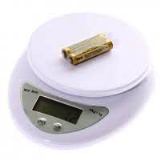
Measuring spoons, for precise measuring of supplements.
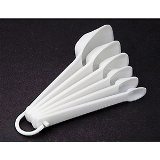
A blender or food processor, to puree them thoroughly.
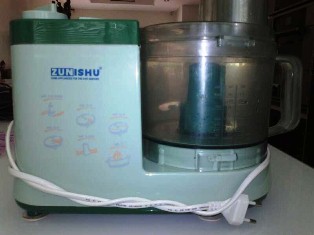
Containers or zip-top bags to store and freeze prepared food.
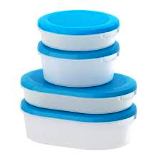
Cooking Instructions
Firstly, individual items are cooked as required in the recipe. Bear in mind that items that are listed as 'cooked weight', we need to prepare double the fresh amount so that when it is cooked, the amount is sufficient. For example, Yogi's portion of cod fish is 200g (cooked weight) and Oser's portion is also 200g (cooked weight). So, we need 400g cooked cod fish. For this, we need to prepare around double the amount [800g] of raw cod fish to get 400g when it is cooked.
We can prepare/cook Yogi's & Oser's portion together and portion them out when cooked. Meaning, we can cook Yogi's and Oser's cod fish together, but separate 200g out for Yogi and 200g out for Oser when it is done.
All meat products/items are ground individually in the blender or food processor after they are cooked. Do not blend potatoes, sweet potatoes and rice as they will turn into a glue-like mass.
When all individual items are cooked, they are mixed together in a big baking tray or a big pot (for each mumu) by hand. Prepare 2 trays/pots to do this, one for Yogi's food and one for Oser's food. Add yoghurt, rice, chicken fat (not in Oser's recipe), wild salmon oil and pureed spinach. After that, content in each tray is equally portioned/divided into 7 days or parts.
Lastly, for each day's food, they are further divided into equal-sized balls (size of a tennis ball) for each
meal and put into containers. For Yogi's there will be 5 balls for 1 day while for Oser's, there will be 3 balls. This corresponds to how many meals a day they have. All containers are then kept in the freezer.
Yogi's Weekly Diet
200g Cod fish, baked (cooked weight)
- These can be frozen or fresh bought from the supermarket, as long as it is of good quality.
- Cut the cod fish into thin slices, put in a baking tray lined with aluminium foil and bake for 15 minutes.
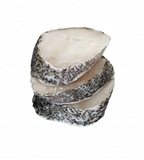
200g Chicken breast, skinless, baked (cooked
weight)
- Cut the chicken into thin slices, put in a baking tray lined with aluminium foil and bake for 15 minutes.
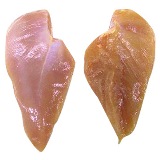
245g Nonfat plain yogurt (regular, not strained)
- We buy Nestle brand "Fat Free" yoghurt for this
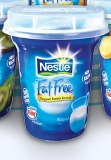
30g Beef liver, cooked, simmered (cooked
weight)
- Cut the liver into thin slices, simmer in a frying pan for 10 minutes
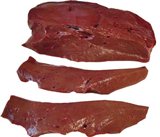
20g Pork kidney, cooked, simmered (cooked
weight)
- Cut the kidney into thin slices, simmer in a frying pan for 10 minutes
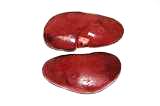
35g Chicken fat, e.g. skimmed from cooking
broth (cooked weight)
- Tear out the chicken skin from the chicken breast and chicken whole leg (from Oser's portion), add water until it is slightly over the top of the pile, boil for around 20 minutes to get sufficient fatty oil (add water from time to time so the liquid doesn't dry up).
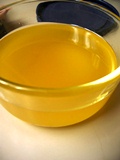
600g Potatoes, boiled with skin, fed without skin
(cooked weight)
- Wash the potatoes well, put in a big pot and boil for 30 minutes
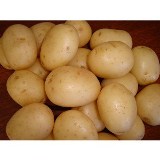
600g Sweet potatoes, boiled with skin, fed without
skin (cooked weight)
- Wash the sweet potatoes well to remove sand, put in a big pot and boil for 30 minutes
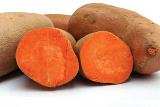
125g Enriched white long-grain rice (dry weight),
cook with 350 ml of water - or more if desired
- Cook normally with a rice cooker
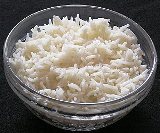
100g Pumpkin - fresh steamed, or canned, whichever
is more convenient (cooked weight)
- Cut the pumpkin into thin slices (remove the skin), and steam in a steam basket for 15 minutes
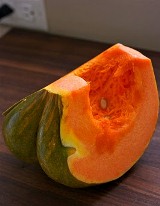
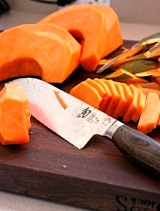
25g Spinach (raw weight) pureed raw and mixed
into food
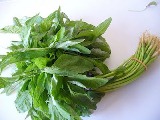
1 ½ teasp Wild
salmon oil
- We use Grizzly brand as this is recommended by the pet store
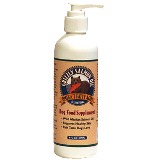
Yogi’s food done for a week to 9 days – Food prepared into 7 containers with 5 balls each. Yogi's food are kept in transparent containers.
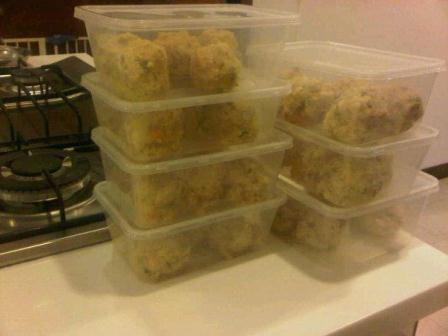
Every day, fresh rice porridge is also cooked with one fillet (around 10cm) of chicken breast for two of Yogi's five meals. Any type of white rice can be used for this as white rice is easier to digest than brown rice. Cook equivalent of 1 big bowl or 16 ounces (2 portions) of porridge for the day. Serve equivalent of half a bowl (1 portion) of porridge for each meal (picture below), mix with half a ball of his regular food.
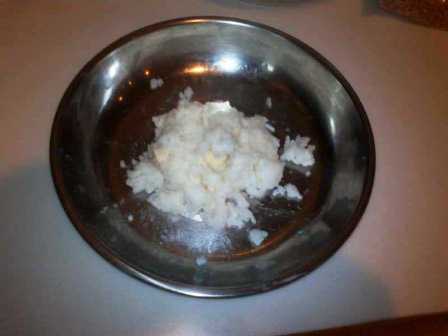
Oser's Weekly Diet
- Cooking instructions same as Yogi's above200g Cod fish, baked (cooked weight)
350g Chicken leg meat, with skin, stewed (cooked
weight)
200g Lean beef roast cut, stewed (cooked weight)
- We usually buy 'topside' cut. Cut them into strips and simmer for 15 minutes until the meat is cooked through
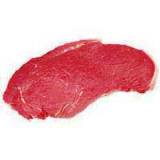
125g Nonfat plain yogurt (regular, not strained)
30g Beef
liver, cooked, simmered (cooked weight)
300g Potatoes, boiled with skin, fed without skin
(cooked weight)
300g Sweet potatoes, boiled with skin, fed without
skin (cooked weight)
125g Unenriched white long-grain rice (dry weight),
cook with 350 ml of water - or more if desired
100g Pumpkin - fresh steamed (cooked weight)
50g Spinach
(raw weight) pureed raw and mixed into food
3 ½
teasp Wild salmon oil
Oser’s food done for a week– Food prepared
into 7 containers with 3 balls each. Oser's food is kept in round/ square containers with blue colour lid. This is to distinguish Yogi's and Oser's food.
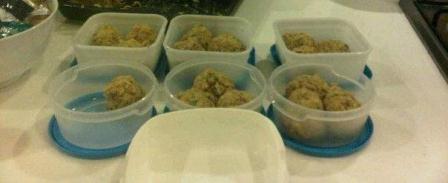
The cooked food are stored in the fridge at the dry kitchen area on the ground floor of Haven. Below are pictures of the fridge - you can see that Yogi's food is stored on the top shelf while Oser's food is stored on the bottom shelf.

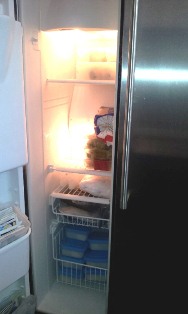
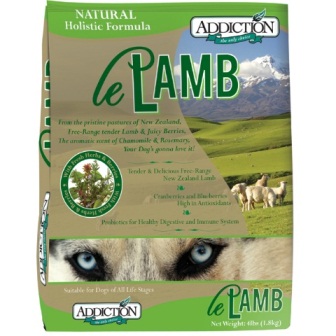
We
usually buy the 9kg pack of this dry food. The above dog food can be purchased at: the pet shop below. You can also purchase the Grizzly wild salmon oil from this pet shop. So far, this is the best food according to nutrition and quality of food for Dharma. If this is not available, we will consult Beng Kooi for other options.
Doggie House
No.29, Ground Floor, Plaza Crystalville 1, Jln.22A/70A,
Desa Sri Hartamas (Behind Maybank).
Tel: 03-62031009, 012-3668562
Mon,
Wed- Sat: 10am – 9pm
Sun: 10am- 8pm
Closed on Tue
SUPPLEMENTS
For the personalised 7-day supplement recipes below for Yogi & Oser, pulverise or grind all ingredients, open and empty
the contents of capsules and mix well in a glass jar with a tightly fitting
lid - we use Ikea's Rajtan Spice jar (picture below).
Shake before each use and add a small teaspoon of this powder to each meal
until at the end of the 7-day period it’s used up.
The portion is dependant on the 14 servings (1 day = 2 servings).
Yogi's Supplement Mix
5 1/4 teasp NOW Bone Meal
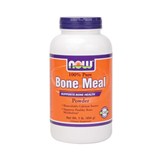
8 scoops NOW Kelp Powder (comes with scoop)
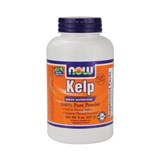
1 3/4 teasp NOW Lecithin Granules non GMO
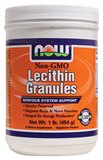
62.5mg Zinc supplement (e.g. 1 ¼ 50mg tablets)
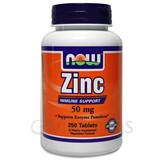
1/4 teasp Table Salt (any brand
is fine, unrefined sea salt is preferable)
5 capsules Allergy Research Group/Nutricology Multi-Vi-Min (with copper and iron)
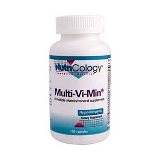
Oser's Supplement Mix
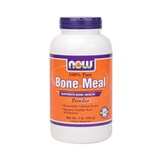
1 1/8 teasp NOW Calcium Carbonate
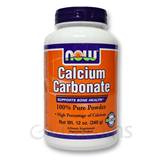
6 scoops NOW Kelp Powder (comes with scoop)
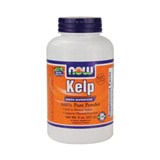
3 ½ teasp NOW Lecithin Granules non GMO
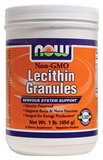
25 mg Zinc supplement (e.g. 1/2 50mg tablet)
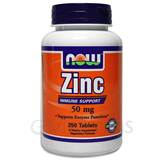
1/8
teasp Table Salt (any brand
is fine, unrefined sea salt is preferable)
4 capsules Allergy Research
Group/Nutricology Multi-Vi-Min (with copper)
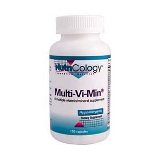
TREATS & CHEWS
It is not recommended to give treats to the mumus as they are fattening and usually do not contain much nutrients. However, these are used to tempt them to exercise, to encourage them to follow commands and sometimes to cheer them up.
Below are the 2 types of good quality chews allowed for the mumus. Be very careful when introducing new treats as he is very sensitive to food.
For chews, it is not recommended to use plastic chews as rawhide is not recommended. To get the flesh off the hide, most manufacturers use either an Ash/Lye or Lime solution. To get the Ash/Lye or Lime off the product and to sanitise it, manufacturers use a BLEACH solution. At this time they also shape the rawhide. During this process, rawhide shrinks. When your dog chews off a piece, it will swell in their stomach. The gastric juices in a dogs' stomach will not break the rawhide down. If the piece is too large, it will get caught in the bowels and need costly surgery to be removed.
Note:
Yogi is not allowed to eat any treats due to his medical condition.
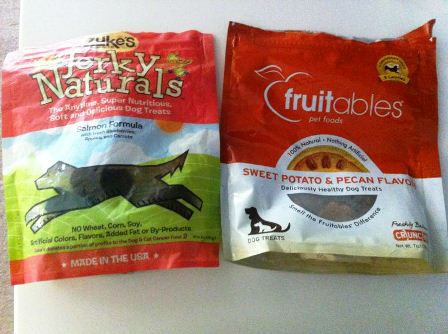
FRESH VEGETABLES AND FRUITS
Dogs can’t digest plant life cell walls. They are missing cellulase, an enzyme necessary for plant digestion. Giving a dog raw vegetables holds no nutritional value because they can’t digest them. You have to break those walls down for them by preparing fruits and vegetables in a food processor or blender, cooking or steaming vegetables, or juicing them into a pulp. Cutting them up does not break down the cell wall, they must be mashed.
DANGEROUS FOOD FOR THE MUMUS
Bear in mind that items below are dangerous for the mumu and MUST NOT be given to the mumus.
Avocado
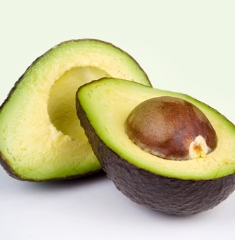
Avocados contain a substance called persin. It's harmless for
humans who aren't allergic. But large amounts might be toxic to dogs. If you
happen to be growing avocados at home, keep your dog away from the plants.
Persin is in the leaves, seed, and bark, as well as in the fruit.
Alcohol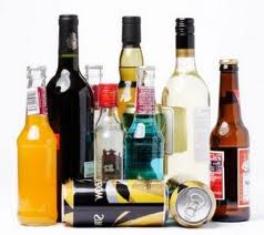
Beer, liquor, wine, foods containing alcohol -- none of it's good for your dog.
That's because alcohol has the same effect on a dog's liver and brain that it
has on humans. But it takes far less to do its damage. Just a little can cause
vomiting, diarrhea, central nervous system depression, problems with
coordination, difficulty breathing, coma, even death. And the smaller the dog,
the greater the effect.
Onions and Garlic
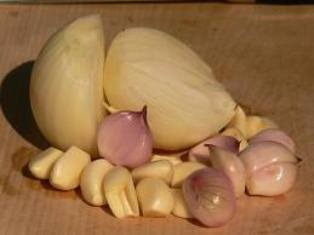
Onions and garlic in all forms --
powdered, raw, cooked, or dehydrated -- can destroy a dog's red blood cells,
leading to anemia. That can happen even with the onion powder found in some
baby food. An occasional small dose is probably OK. But just eating a large
quantity once or eating smaller amounts regularly can cause poisoning. Symptoms
of anemia include weakness, vomiting, little interest in food, dullness, and
breathlessness.
Coffee, Tea, and Other Caffeine
Caffeine in large enough quantities can
be fatal for a dog. And, there is no antidote. Symptoms of caffeine poisoning
include restlessness, rapid breathing, heart palpitations, muscle tremors,
fits, and bleeding. In addition to tea and coffee - including beans and grounds
-- caffeine can be found in cocoa, chocolate, colas, and stimulant drinks such
as Red Bull. It's also in some cold medicines and pain killers.
Grapes and Raisins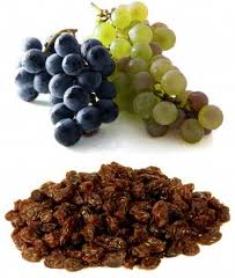
Although it isn't clear why, grapes and
raisins can cause kidney failure in dogs. And just a small amount can make a
dog ill. Repeated vomiting is an early sign. Within a day, the dog will become
lethargic and depressed. The best prevention is to keep grapes and raisins off
counters and other places your dog can reach.
Milk and Other Dairy Products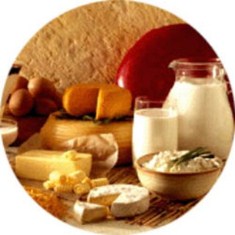
Milk and milk-based products can cause
diarrhea and other digestive upset as well as set up food allergies (which
often manifest as itchiness).
Macadamia Nuts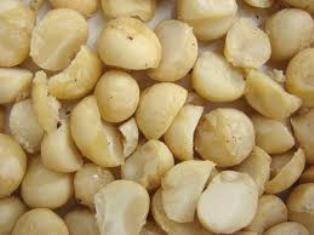
Dogs should not eat macadamia nuts or
foods containing macadamia nuts because they can be fatal. As few as six raw or
roasted macadamia nuts can make a dog ill. Symptoms of poisoning include muscle
tremors, weakness or paralysis of the hindquarters, vomiting, elevated body
temperature, and rapid heart rate. Eating chocolate with the nuts will make
symptoms worse, possibly leading to death.
Candy and Gum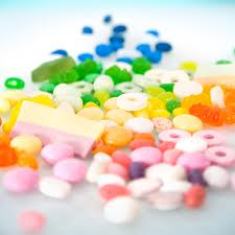
Candy, gum, toothpaste, baked goods, and
some diet foods are sweetened with xylitol. Xylitol can cause an increase in
the insulin circulating through your dog's body. That can cause your dog's
blood sugar to drop and can also cause liver failure. Initial symptoms include
vomiting, lethargy, and loss of coordination. Eventually, the dog may have
seizures. Liver failure can occur within just a few days.
Chocolate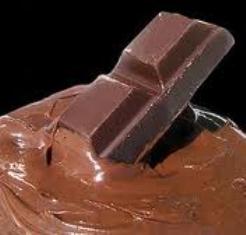
The toxic agent in chocolate is
theobromine. It's in all kinds of chocolate, even white chocolate. The most
dangerous kinds, though, are dark chocolate, chocolate mulch, and unsweetened
baking chocolate. Eating chocolate, even just licking the icing bowl, can cause
a dog to vomit, have diarrhea, and be excessively thirsty. It can also cause
abnormal heart rhythm, tremors, seizures, and death.
Fat Trimmings and Bones
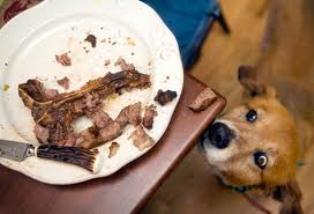
Table scraps often contain meat fat that
a human didn't eat and bones. Both are dangerous for dogs. Fat trimmed from
meat, both cooked and uncooked, can cause pancreatitis in dogs. And, although
it seems natural to give a dog a bone, a dog can choke on it. Bones can also
splinter and cause an obstruction or lacerations of your dog's digestive
system. It's best to just forget about the doggie bag.
Persimmons, Peaches, and Plums
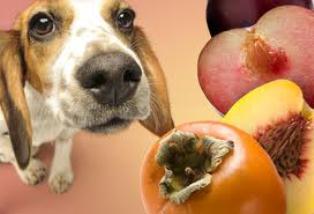
The problem with these fruits is the
seeds or pits. The seeds from persimmons can cause inflammation of the small
intestine in dogs. They can also cause intestinal obstruction. Obstruction is
also a possibility if a dog eats the pit from a peach or plum. Plus, peach and
plum pits contain cyanide, which is poisonous to both humans and dogs. The
difference is humans know not to eat them. Dogs don't.
Raw Eggs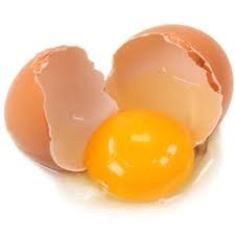
There are two problems with giving your
dog raw eggs. The first is the possibility of food poisoning from bacteria like
Salmonella or E. coli. The second is that an enzyme in raw eggs interferes with
the absorption of a particular B vitamin. This can cause skin problems as well
as problems with your dog's coat if raw eggs are fed for a long time.
Salt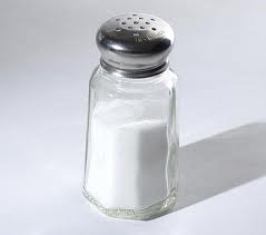
It's not a good idea to share salty foods
like chips or pretzels with your dog. Eating too much salt can cause excessive
thirst and urination and lead to sodium ion poisoning. Symptoms of too much
salt include vomiting, diarrhea, depression, tremors, elevated body
temperature, and seizures. It may even cause death.
Sugary Foods and Drinks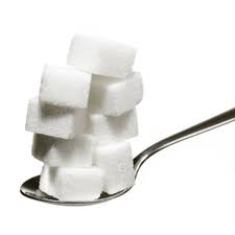
Too much sugar can do the same thing to
dogs that it does to humans. It can lead to obesity, dental problems, and
possibly the onset of diabetes.
Yeast Dough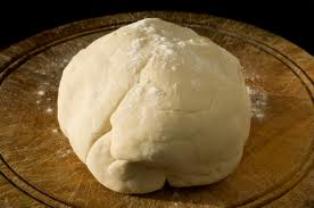
Before it's baked, bread dough needs to
rise. And, that's exactly what it would do in your dog's stomach if your dog
ate it. As it swells inside, the dough can stretch the dog's abdomen and cause
severe pain. In addition, when the yeast ferments the dough to make it rise, it
produces alcohol that can lead to alcohol poisoning.
Your Medicine

Reaction to a drug commonly prescribed
for humans is the most common cause of poisoning in dogs. Just as you would do
for your children, keep all medicines out of your dog's reach. And, never give
your dog any over-the-counter medicine unless told to do so by your vet.
Ingredients such as acetaminophen or ibuprofen are common in pain relievers and
cold medicine. And, they can be deadly for your dog.